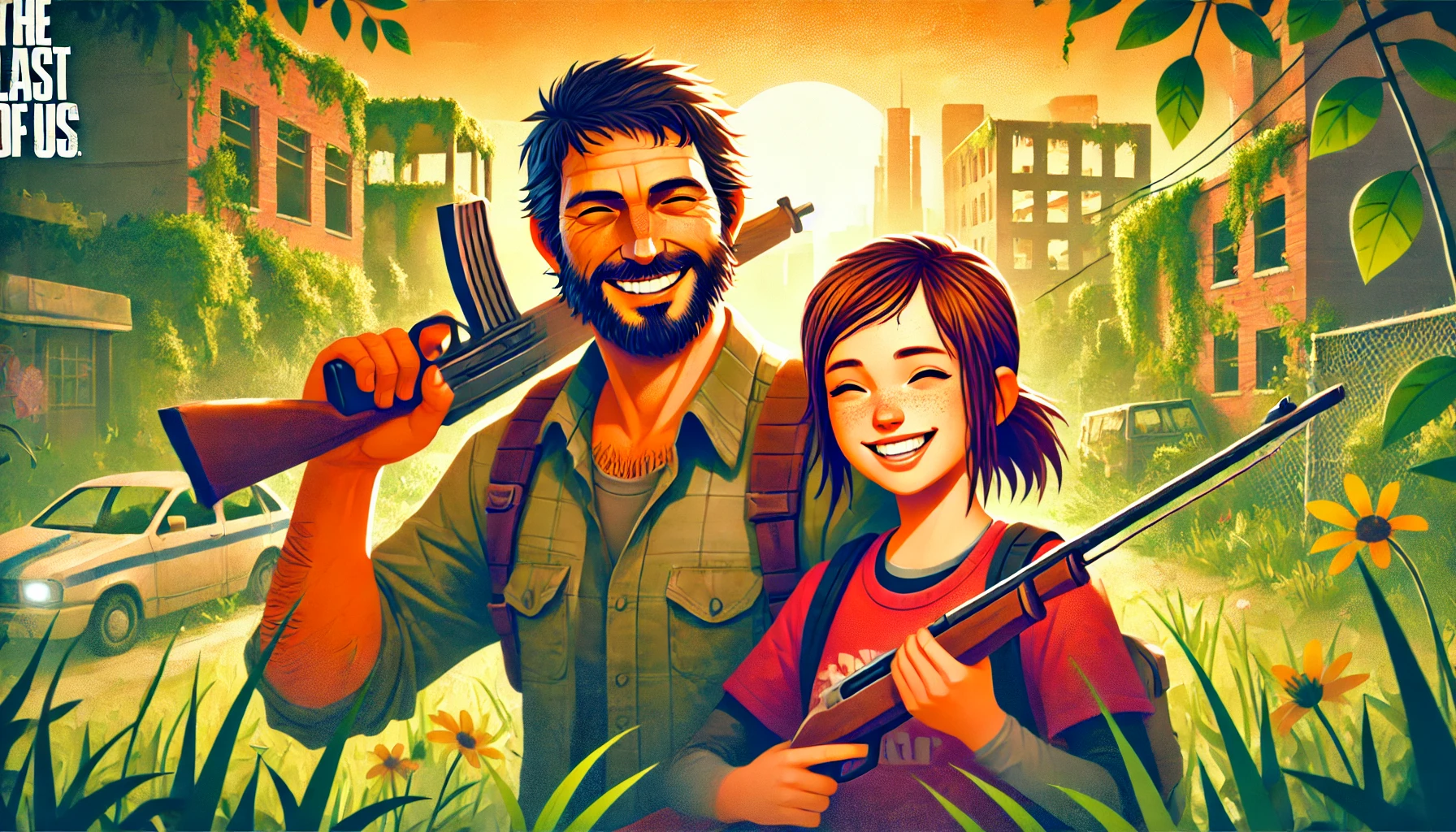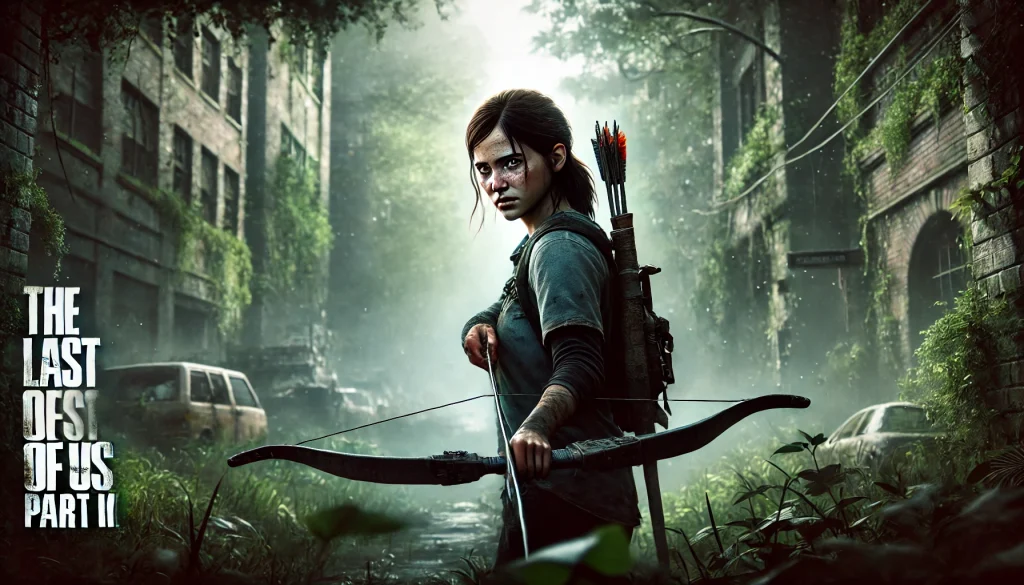
Introduction
When I first played The Last of Us, I didn’t expect it to leave such a profound impact on me. Released in 2013 by Naughty Dog, this game revolutionized storytelling in video games. Its emotional depth, complex characters, and immersive gameplay set a new standard for the industry. Now, as I reflect on my experiences with The Last of Us, I want to share why I love this game so much and how it has stayed with me over the years.
The Story
The Last of Us tells the story of Joel and Ellie, two survivors navigating a post-apocalyptic world ravaged by a fungal infection. This infection has turned much of humanity into zombie-like creatures. Joel, a smuggler with a tragic past, must escort Ellie, a teenage girl immune to the infection, across the United States. The premise alone hooked me, but the execution exceeded all my expectations.
The game begins with a powerful prologue. I played as Joel’s daughter, Sarah, during the initial outbreak. The sense of panic and confusion felt real, and the emotional impact of Sarah’s death in Joel’s arms left me reeling. This prologue set the tone for the rest of the game and immediately invested me in Joel’s journey.
As the story progresses, Joel and Ellie’s relationship evolves from a reluctant partnership to a deep, father-daughter bond. Their interactions feel authentic, filled with moments of tension, humor, and tenderness. The narrative structure, divided into seasons, mirrors their journey and the changing world around them. Each season brings new challenges and revelations, keeping me engaged and emotionally invested.
Character Development
The characters in The Last of Us are some of the most well-developed I’ve ever encountered in a video game. Joel, haunted by the loss of his daughter, starts as a hardened survivor. His journey with Ellie forces him to confront his past and slowly open up. Watching Joel’s transformation from a closed-off, grieving father to a protective, caring figure remains one of the most rewarding experiences in gaming.
Ellie, on the other hand, is a strong, resourceful, and resilient character. Growing up in a world without hope, she possesses a toughness that belies her age. Yet, her moments of vulnerability and curiosity make her incredibly relatable. Her determination to find meaning and purpose in her immunity adds depth to her character. The dynamic between Joel and Ellie, brought to life by the stellar performances of Troy Baker and Ashley Johnson, made me care deeply about their fates.
Gameplay
The gameplay in The Last of Us perfectly complements its narrative. The combination of action, stealth, and exploration creates a balanced and engaging experience. Combat feels intense and visceral, with limited resources adding a strategic layer. Every encounter felt dangerous, forcing me to carefully consider my approach. The scarcity of ammunition and supplies heightened the sense of desperation and survival.
Stealth mechanics allowed for different playstyles. I often found myself sneaking past enemies to conserve resources, but when combat became unavoidable, the gunplay and melee combat felt satisfying and impactful. Crafting items from scavenged materials added another layer of strategy, making every decision feel significant.
Exploration plays a crucial role in the game. The post-apocalyptic world, beautifully crafted, encouraged me to search for supplies and collectibles. Each environment told its own story through environmental details, creating a sense of immersion. Abandoned buildings, overgrown streets, and eerie quiet zones added to the atmosphere, making the world feel alive and believable.
Atmosphere and Visuals
The atmosphere in The Last of Us captivated me from the start. The game’s visual design, even years after its release, remains stunning. The attention to detail in the environments, from decaying urban landscapes to nature reclaiming the land, created a hauntingly beautiful world. The contrast between the beauty of nature and the destruction wrought by the infection added depth to the experience.
Sound design further enhanced the atmosphere. The ambient sounds of the world, from distant growls of infected to rustling leaves, created a sense of tension and unease. Gustavo Santaolalla’s haunting score perfectly complemented the game’s tone, adding emotional weight to key moments. The combination of visuals and sound created an immersive experience that lingered with me long after I finished playing.
Emotional Impact
Few games have evoked such a range of emotions in me as The Last of Us. The narrative and character-driven storytelling made me feel sorrow, fear, hope, and love. The relationship between Joel and Ellie forms the heart of the game, and their journey is filled with moments that tugged at my heartstrings.
One of the most memorable moments for me was the ending. Without spoiling it, the conclusion left me questioning the nature of love, sacrifice, and morality. The game’s ability to provoke such deep reflections is a testament to its storytelling prowess. It made me care about the characters and their world in a way that few other games have achieved.
The Last of Us Part II

When The Last of Us Part II released in 2020, I eagerly dived back into this world. The sequel continues Ellie’s story, introducing new characters and perspectives. This time, the narrative explores themes of revenge, trauma, and the cycle of violence, delivering an even more ambitious and complex story.
Part II refined and expanded the gameplay mechanics. Improved stealth and combat systems made encounters more dynamic and intense. The visual and audio design showcased Naughty Dog’s technical prowess, with stunning environments and an evocative score. While Part II has been divisive among fans, I found it to be a powerful continuation of the story, challenging me to confront uncomfortable truths and question my own motivations.
Anticipation for the TV Series
The announcement of The Last of Us TV series adaptation excited me. The first season captured the essence of the game beautifully, staying true to the source material while adding depth and new perspectives. With Season 2 on the horizon, my anticipation has only grown.
What to Expect in Season 2
Season 2 of The Last of Us series will likely delve into the events of The Last of Us Part II. This means we’ll see the continuation of Ellie’s journey, her quest for revenge, and the introduction of new characters. The series has the potential to explore the game’s complex themes and character dynamics in even greater detail, given the longer format of television.
I’m especially excited to see how the series handles the darker and more challenging narrative of Part II. The casting of Pedro Pascal as Joel and Bella Ramsey as Ellie has been spot on, and their performances have captured the essence of the characters. I’m eager to see how they bring the emotional weight of Part II to the screen.
The Challenges of Adaptation
Adapting a beloved game like The Last of Us comes with its challenges. The series needs to balance staying true to the source material while making it accessible and engaging for new audiences. The first season managed this beautifully, and I have high hopes that Season 2 will continue this trend.
Portraying the intense and often brutal scenes from Part II in a way that is impactful but not gratuitous will be a challenge. The game’s depiction of violence serves a narrative purpose, highlighting the consequences of actions and the cycle of revenge. Translating this to the screen requires careful handling to maintain its emotional weight.
My Personal Hopes for Season 2
As a fan, I have a few hopes for the upcoming Season 2. Firstly, I hope the series continues to delve into the characters’ emotional journeys. One of the strengths of the game is its character-driven storytelling, and I want to see more of Joel and Ellie’s complex relationship explored.
Secondly, I’m excited to see the new characters from Part II introduced and developed. Characters like Abby, Dina, and Lev add richness to the narrative, and their stories are integral to the overall plot. I hope the series gives them the depth and attention they deserve.
Lastly, I hope the series maintains the atmospheric and immersive qualities of the game. The visual and sound design of the first season captured the post-apocalyptic world beautifully, and I look forward to seeing how they bring the new environments and settings of Part II to life.
Conclusion
The Last of Us is more than just a game; it’s an experience that has left a lasting impact on me. Its compelling narrative, well-developed characters, and emotional depth make it a masterpiece in the gaming industry. As we look forward to the upcoming Season 2 series adaptation, the excitement and anticipation are high.
The series has the potential to expand on the game’s story and explore its complex themes in even greater detail. With talented actors, skilled writers, and a dedicated fanbase, I’m confident that Season 2 will deliver an unforgettable experience. Whether you’re a longtime fan of the game or new to the world of The Last of Us, the journey through this post-apocalyptic world is one worth taking.
FAQs
- What makes The Last of Us game so special? The Last of Us is renowned for its compelling narrative, complex characters, and emotional depth. Its focus on character-driven storytelling and moral dilemmas sets it apart from other games.
- How does The Last of Us Part II build on the first game? Part II continues Ellie’s journey, introducing new characters and perspectives. It explores themes of revenge, trauma, and the cycle of violence, offering a darker and more complex narrative.
- What can we expect from Season 2 of The Last of Us series? Season 2 is expected to delve into the events of The Last of Us Part II, continuing Ellie’s story and introducing new characters. It aims to capture the game’s emotional weight and complex themes.
- Who are the main actors in The Last of Us series? Pedro Pascal stars as Joel and Bella Ramsey